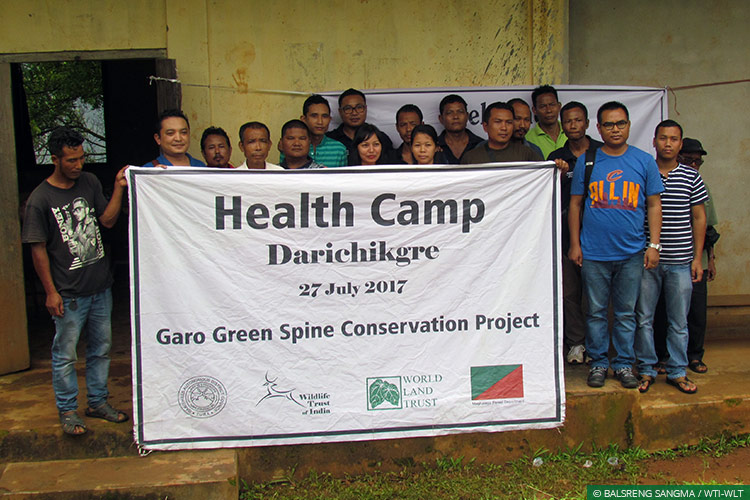
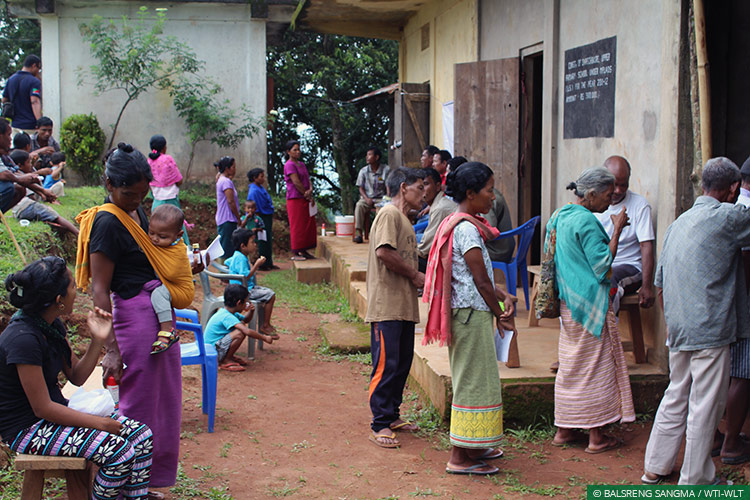
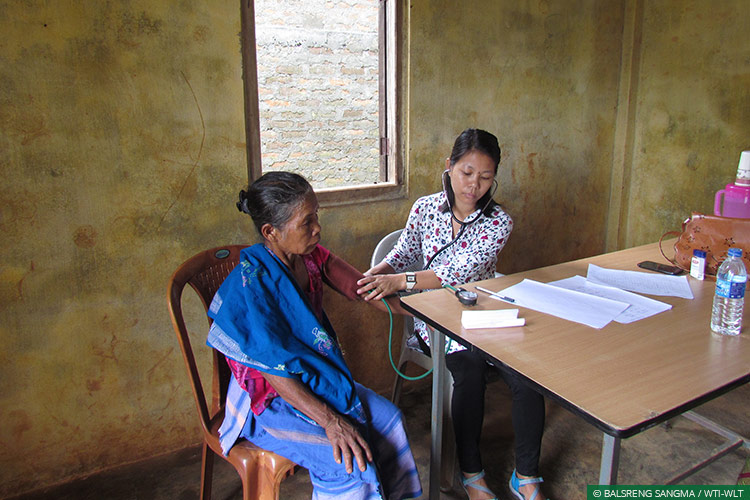
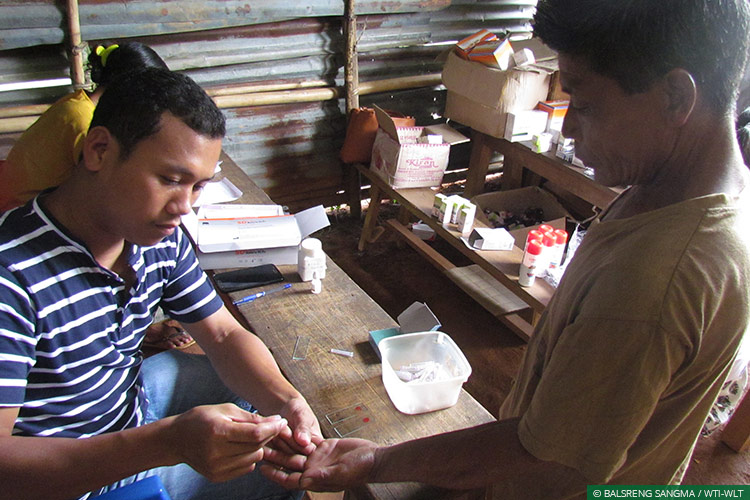
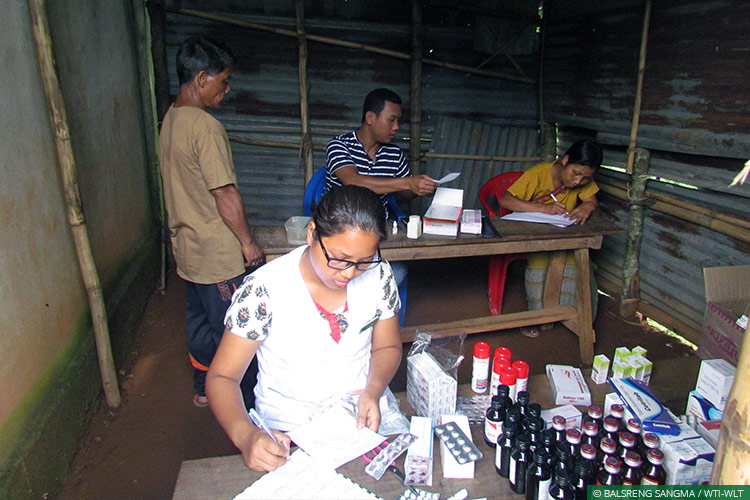
Snapshots of the health camp conducted by WTI-WLT at Darichikgre in July
Garo Hills, Meghalaya, Aug 2, 2017: A free, one-day Medical Health Camp for the residents of three villages in the Garo Hills was conducted at the community hall of Darichikgre village on July 27.
The camp, which was implemented under the Garo Green Spine Project run by Wildlife Trust of India (WTI) and World Land Trust (WLT) with support from the Meghalaya Forest Department and Garo Hills Autonomous District Council (GHADC), was organised in collaboration with the Asanang Primary Health Centre (PHC). The three villages that were catered to – Darichikgre, Baladingre, Tosekgre – are all of key importance to the Garo Green Spine* region where the WTI-WLT team has worked for over a decade, motivating and supporting local communities to set aside land for Village Reserve Forests (VRFs) to provide better habitat and connectivity for wild animals. The community of Darichikgre, a village that is one of the major water catchment areas of the Ganol River, has in fact recently set aside 149 hectares of land for conservation and got it notified by the GHADC as a Village Reserve Forest.
The medical team from Asanang PHC was headed by Dr S T Sangma and included Dr M R Marak and Dr S K Marak. A total of 172 villagers including children were provided free health consultations, treatment, and medicines as required; 72% of the villagers were adults and 28% were children between the age of 0 and 14 years; there were more men (59.3%) than women (40.7%); the most common diseases treated were skin infections (24.4%) followed by the common cold, cough and fever (18%); gastroenteritis, back pain, peripheral neuritis and clinical anaemia were other diseases treated.
“Our village community does not have access to proper healthcare due to bad road conditions, especially during the monsoon. This is a very thoughtful gesture.”
“I would like to express my gratitude to the government medical personnel, WTI-WLT and the Meghalaya Forest Department for setting up this camp in our village”, said Mr Plainson A Sangma, the Nokma (village chief) of Darichikgre. “Our village community does not have access to proper healthcare due to bad road conditions, especially during the monsoon. This is a very thoughtful gesture. I would like to convey my full support for the conservation of wildlife and its habitats in the region.”
The Range Officer of Northern Nokrek Range, Mr Connor Tengvan Marak was equally appreciative of the health camp: “I congratulate the entire team of WLT-WTI, GHADC and the medical personnel for this wonderful initiative”, he said. “Darichikgre is a village which is not so far from the district headquarters in Tura, but lacks proper medical facilities due to its inaccessible terrain and poor road connectivity. Such camps are a prime necessity in places like this and I am proud to have been associated with this one.”
The camp ended with a note of thanks by WTI’s Sunil Kyarong, Head – Garo Green Spine Project. Mr Kyarong said that initiatives like the health camp were but a small token of gratitude towards the people of Garo Hills for their continued support for the conservation of forests and wildlife in the region. He also expressed the hope that such camps would do their part in improving the health of the local population.
*WTI-WLT’s overarching aim is to connect the fragmented forest patches located between the West Garo Hills and Nokrek National Park, with a view to establishing an unbroken wilderness link with Balpakram National Park. This network of forest patches forms the backbone of the region’s biodiversity and has been designated the Garo Green Spine.